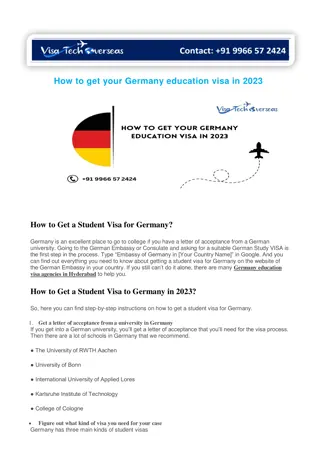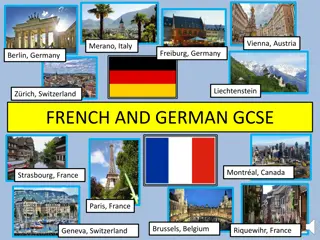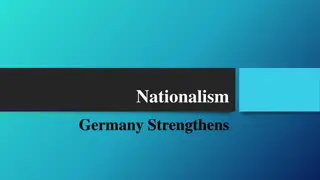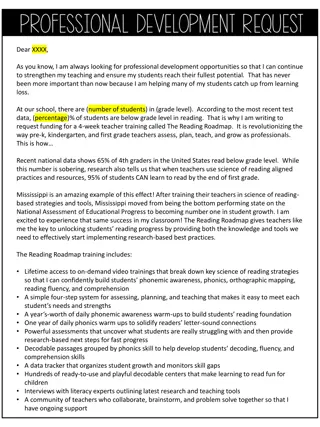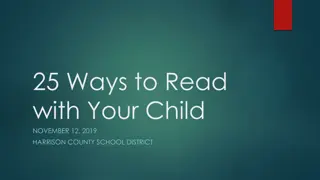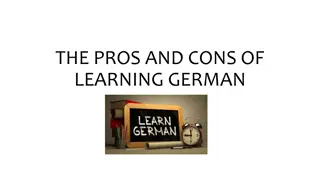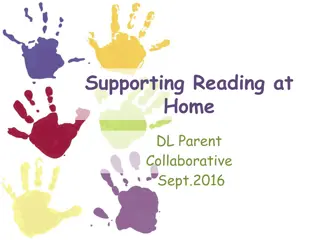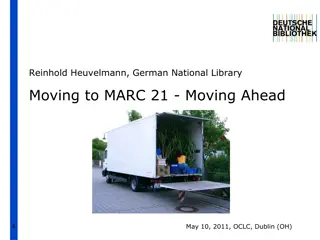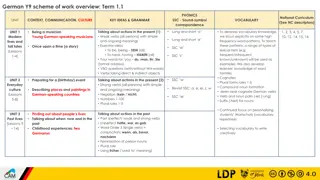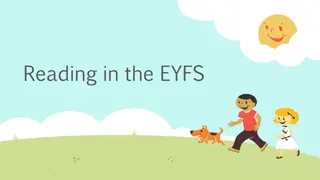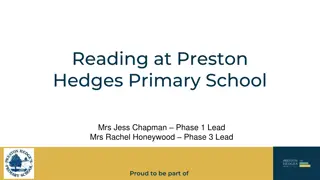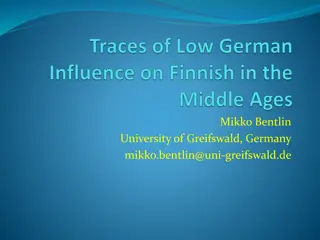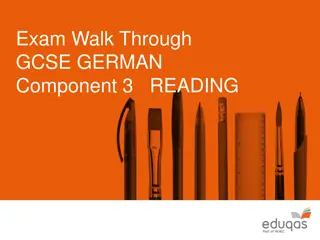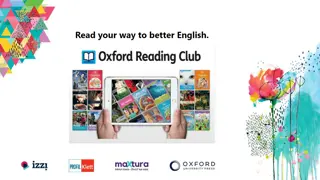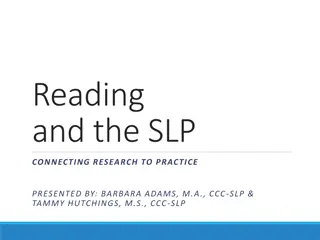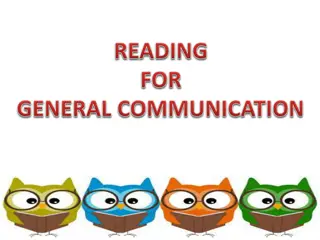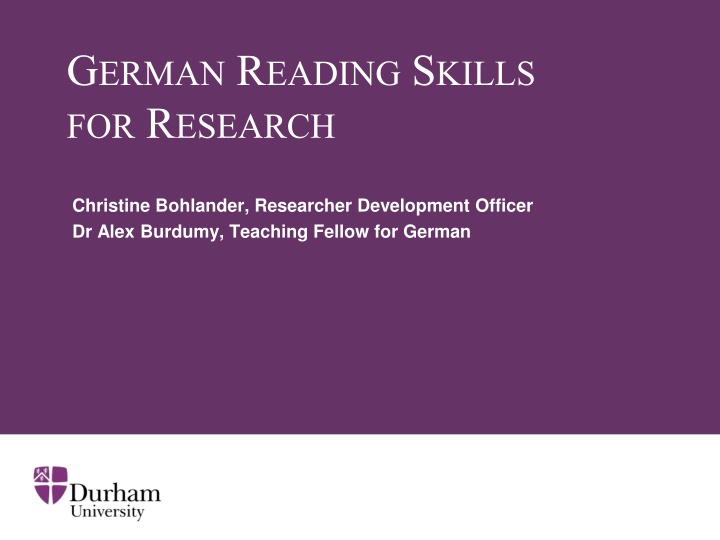
Enhancing German Reading Skills for Research Success
Explore the evolution and significance of German reading classes at Durham University, catering to diverse students in a variety of subjects. Discover the course materials, target audience, and effective strategies for improving reading proficiency in German.
Download Presentation

Please find below an Image/Link to download the presentation.
The content on the website is provided AS IS for your information and personal use only. It may not be sold, licensed, or shared on other websites without obtaining consent from the author. If you encounter any issues during the download, it is possible that the publisher has removed the file from their server.
You are allowed to download the files provided on this website for personal or commercial use, subject to the condition that they are used lawfully. All files are the property of their respective owners.
The content on the website is provided AS IS for your information and personal use only. It may not be sold, licensed, or shared on other websites without obtaining consent from the author.
E N D
Presentation Transcript
GERMAN READING SKILLS FOR RESEARCH Christine Bohlander, Researcher Development Officer Dr Alex Burdumy, Teaching Fellow for German
History of reading classes at Durham Epiphany Term 2009: History Department German pilot project for beginners & post-GCSE Since Michaelmas Term 2009: university-wide provision of reading classes for all Postgraduate Researchers, first in German, then extended to French, later to other languages Since Michaelmas Term 2010: MA credit-bearing reading skills modules in German and French for A&H at two levels
Classes offered to PGRs 9 weeks (1 term), 2 hours per week Different languages: Different levels (for German and French): - German - French - Spanish - Italian - Farsi - Arabic - Russian - Beginners - Post-Beginners - Intermediate - Advanced
Who are the students? Diversity in Mother tongue Linguistic background Subject area Occasionally members of staff
Target audience in German in Durham: 1) Theologians 2) Classicists 3) Historians 4) Archaeologists 5) Philosophers, law students, political scientists, musicologists, English literature students, etc.
Course materials Focus on grammar and sentence structure What is already out there? Shop around: which other universities offer reading classes? Oxford, Cambridge, etc. Little pedagogic literature (out of fashion: the opposite of communicative approach) Bespoke textbooks for reading academic texts and online resources about grammar
Choice of textbook some out of print, expensive
Inductive, step-by-step grammar, practice with sentences, ideal for self- study
Deductive, introduces chapters with texts, not easy to navigate
Course Content Vocabulary: Dictionary skills and other strategies Cognates / false friends Grammar: Steep learning curve (4 cases in one session) Based on texts from the start Consolidation for higher levels: Based on authentic texts
Pedagogical approach Skills trained: comprehension skills, decoding of structures, deductive skills, dictionary skills a bit like teaching Latin Islands of knowledge rather than islands of ignorance Toolkit for decrypting German texts No discipline-specific vocabulary Identify difficult lexical items, conjugations and structures Werden, gehen, handeln, zwar , EAPs, reported speech, highly irregular verb forms, certain cases
Additional considerations Doesn t foster intercultural communication No production of language (not even pronunciation) Meta-linguistic skills, students from different disciplines classicists vs. physicists Assessment (MA marking) must consider different components: comprehension skills, grammar knowledge, ability to identify structures and grammatical items, progression, translation skills

